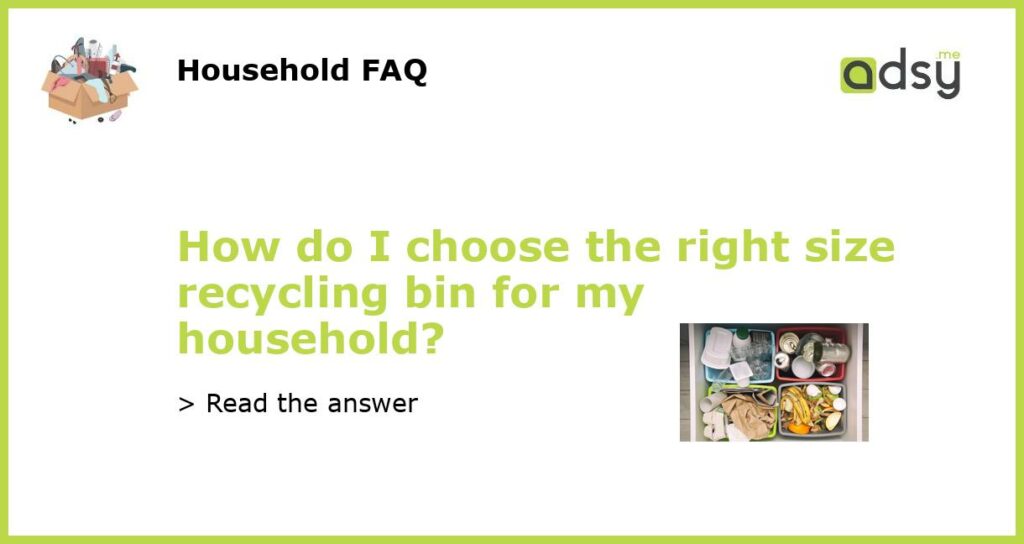Assess your household’s recycling needs
Choosing the right size recycling bin for your household is essential in ensuring that you have enough space to store your recyclables until collection day. The first step in determining the size of your recycling bin is to assess your household’s recycling needs. Consider the number of people living in your household and the amount of waste you generate on a regular basis. If you have a large family or produce a significant amount of recyclable materials, you may need a larger bin to accommodate your needs.
Calculate the amount of recyclables you dispose of
To accurately determine the right size recycling bin for your household, you need to calculate the average amount of recyclables you dispose of each week or month. Start by tracking your recycling habits for a specific period, such as a week. Keep a tally of the number of bottles, cans, papers, and other recyclable materials you throw away. This will give you a rough estimate of the volume of recyclables you generate.
Consider storage space and accessibility
In addition to considering the amount of recyclables you dispose of, you also need to consider the available storage space in your home. Take a look at your current garbage and recycling storage area and assess whether it can accommodate a larger recycling bin. If your space is limited, you may need to opt for a smaller bin or explore alternative storage solutions, such as compact recycling bins or collapsible containers. Accessibility is also an important factor to consider, as you want a bin that is easy to access for both adding recyclables and emptying on collection day.
Check with your local recycling program
Before purchasing a recycling bin, it’s a good idea to check with your local recycling program to see if they have any specific guidelines or requirements for bin sizes. Different recycling programs may have different rules or recommendations regarding the size and type of recycling bins allowed. Some programs may provide specific guidelines on the dimensions or capacity of the bins you can use. By checking with your local recycling program, you can ensure that you choose a bin that meets their requirements.
Consider future needs and flexibility
When choosing a recycling bin, it’s important to consider not just your current needs but also any future changes in your household. If you anticipate an increase in the amount of recyclables you generate or a change in your household size, it may be wise to choose a slightly larger bin to accommodate these potential changes. Additionally, consider the flexibility of the bin, such as whether it has compartments or dividers that allow you to sort different types of recyclables more easily. This can make the recycling process more efficient and organized.






